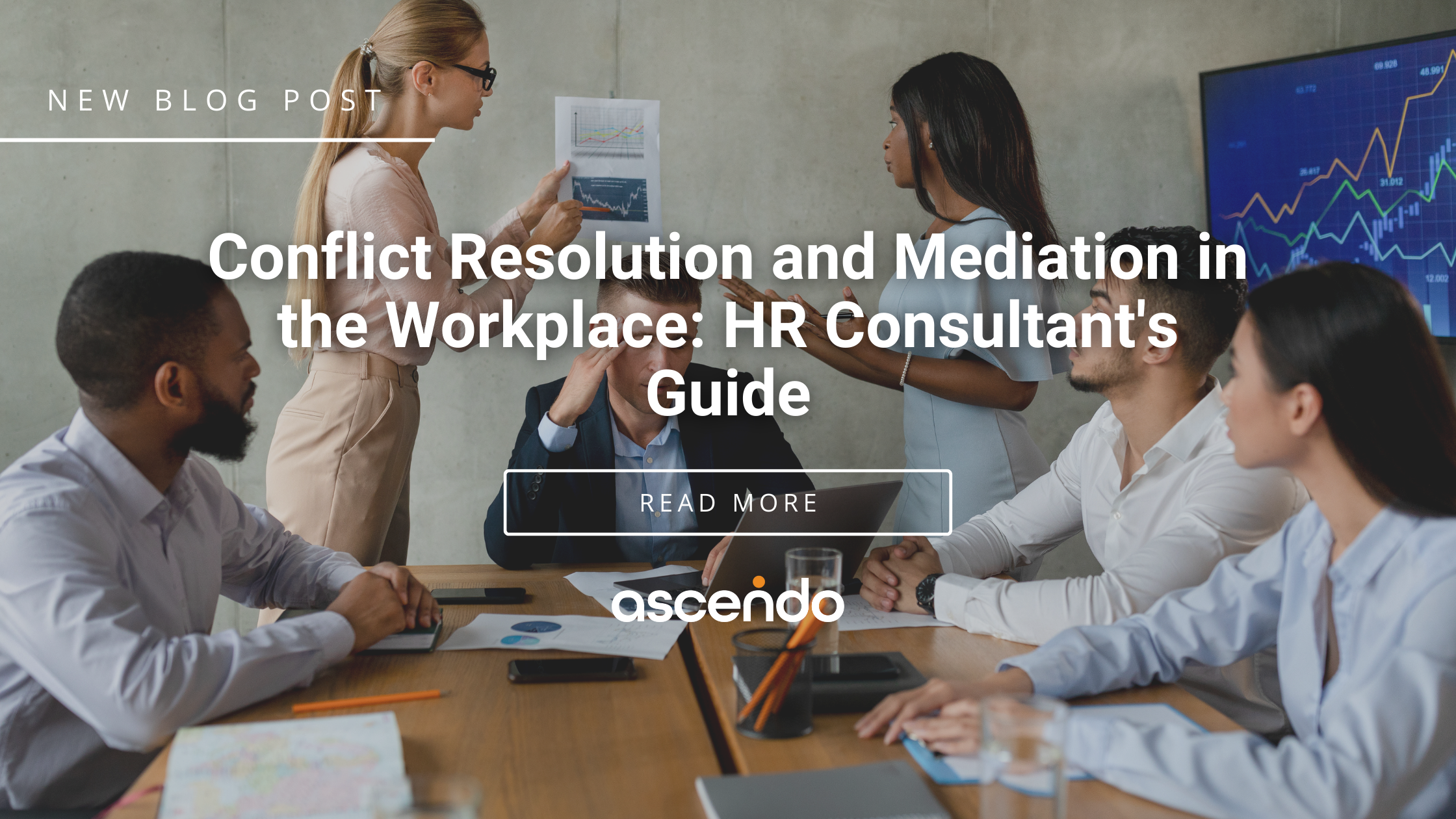Conflict Resolution and Mediation in the Workplace: HR Consultant's Guide
conflicts in the workplace are almost inevitable. From differences in opinions and communication breakdowns to personal clashes, workplace conflicts can disrupt productivity, hinder employee morale, and even lead to legal issues if left unaddressed. As an HR consultant, it is your responsibility to foster a harmonious work environment and facilitate conflict resolution when needed. In this blog, we will explore the essential role of HR consultants in conflict resolution and mediation in the workplace.
The Role of HR Consultants
HR consultants play a pivotal role in managing and resolving conflicts in the workplace. Their responsibilities include:
Conflict Prevention: Proactive HR consultants work to prevent conflicts by implementing effective communication strategies, creating clear job descriptions, and promoting a positive work culture.
Conflict Identification: HR consultants must be adept at recognizing early signs of conflict, whether through employee complaints, increased absenteeism, or changes in behavior.
Conflict Resolution: Once identified, HR consultants employ various conflict resolution techniques to address the issue. One of the most effective methods is mediation.
Understanding Workplace Conflict
Before diving into conflict resolution and mediation strategies, it's crucial to understand the nature of workplace conflicts. Conflicts can arise from various sources, including:
Interpersonal Conflicts: These occur between individuals due to differences in personalities, values, or working styles.
Structural Conflicts: These arise from issues such as resource allocation, workload distribution, or organizational policies.
Role Conflicts: When employees have unclear job descriptions or overlapping responsibilities, role conflicts can emerge.
Communication Conflicts: Misunderstandings, poor communication, or lack of effective communication can lead to conflicts.
Steps in Workplace Mediation
Here's a simplified guide to the steps HR consultants can follow in workplace mediation:
Preparation: Before the mediation session, HR consultants gather information about the conflict, select a qualified mediator, and schedule a convenient time and place for mediation.
Joint Discussion: Both parties engage in a facilitated discussion, where they express their perspectives and concerns. The mediator guides the conversation.
Private Sessions: In some cases, the mediator may hold private sessions with each party to delve deeper into their interests and possible solutions.
Agreement and Closure: Once a mutually acceptable agreement is reached, the mediator helps draft a formal agreement. The session concludes with a review of the agreed-upon terms.
Follow-Up: HR consultants should follow up to ensure that the agreement is being adhered to and that any further issues are addressed promptly.
Conflict resolution and mediation are essential tools in an HR consultant's toolkit. By proactively addressing conflicts and employing effective mediation techniques, HR consultants can contribute to a more harmonious workplace, improved employee morale, and increased productivity. Remember that each conflict is unique, and the approach to mediation should be tailored to the specific situation. As an HR consultant, your expertise in conflict resolution and mediation is not only valuable to the organization but also instrumental in creating a positive work environment for all employees.

